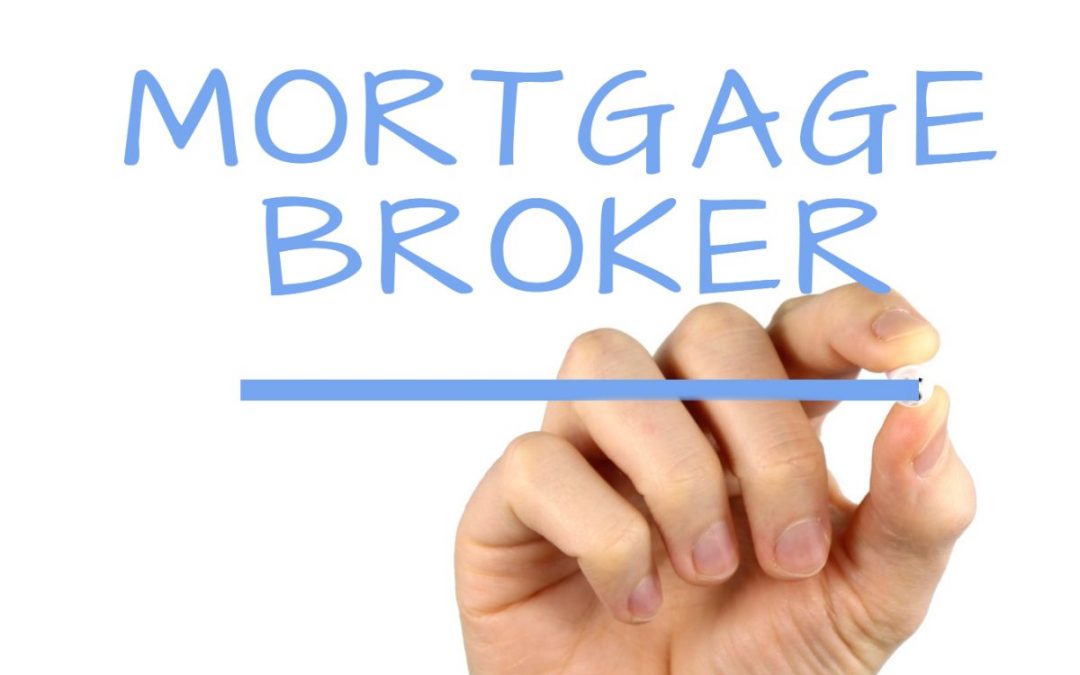
Jan 6, 2020
Buying your first home is a very big step that is both exciting and overwhelming. As it is a very large investment, it’s important to have all of the information beforehand so that you’re well prepared.
There are several aspects you need to consider when buying a home, including tax credits and a home inspection, for example. The biggest aspect to think about is the mortgage, which is the loan you require to purchase the home. You can shop around for different rates and see which lender will provide you with approval but the basics of a mortgage will be similar no matter which lender it’s from. You will be required to make payments to the lender and the amount will consist of the principal payment, which is the loan amount, as well as the interest. Other elements like property tax and home insurance can be a part of the payments as well if you bundle them together. Those details will all be discussed with the lending institution prior to receiving approval.
At first, a big portion of the payments will go towards the interest as opposed to the principal, however, as time goes by, this will change and the payments will go towards the principal. This is very common when it comes to mortgages because of the large amount that is being borrowed.
All mortgages will have a term that indicates how long the details and agreement of your mortgage are applicable. A common term is five years, although other options are available as well depending on your situation. During this term, you will be required to make payments based on the rate you agreed upon, which will be either a fixed rate or a variable one. Once you’re locked into either of those rates you will need to make payments accordingly. Your term will also dictate the interest rates you’ll be given as term lengths do make a difference.
Amortization is another aspect you need to be familiar with as it calculates the length of time you’ll be required to pay off your mortgage, including the principal and interest. Twenty-five years is the longest amortization in Canada for insured mortgages. A longer amortization will mean lower monthly payments but keep in mind that means more interest payments. Amortization and a term are different concepts when it comes to a mortgage, so make sure you know the difference and that you’re clear on the details.
A mortgage is a very big deal, so if you’re a first time home buyer, you need to contact a mortgage broker you can trust from a reputable company like SAN Mortgages in Toronto.
We have access to a vast array of mortgage options and our highly-trained mortgage specialists can find the perfect fit for you. Contact us today, we’re always here to chat about your mortgage needs.

Nov 5, 2019
Mortgage refinancing is a term used for a new mortgage on your property when it replaces the old one. It generally comes with a set of new terms and conditions. However, the word is often misunderstood by many who associate it with a second mortgage, which is not the case. Mortgage refinancing allows a borrower to acquire a better interest term and rate only after the first loan is paid off. It can help you reduce monthly payments, take cash out to make other important purchases or select a new mortgage company to lower interest rates.
If borrowers show good credit history, refinancing offers a better variable loan rate at less interest to be fixed for the new loan. But if borrowers have low credit or questionable credit history with too much debt, refinancing can result in more risks as lenders look for ways to safeguard themselves.
Should you Refinance Your Home?
A home mortgage can cause a lot of stress to the borrower as it can get challenging over the years. If earning fluctuates due to job changes or an unstable economy or interest rates go up, timely mortgage payments become more difficult. This is when refinancing can help.
However, refinancing needs knowledge about the market conditions, financial management and awareness of the current rates in your neighbourhood. It is a good option when you have enough equity in your home (the difference between the amount required to pay the mortgage company and the worth of your home).
There are several advantages to refinancing:
- It can help reduce interest rates.
- As income increases and bills are paid on time, credit score improves, which helps bring down interest rates.
- Lower interest rate helps reduce monthly payments, with the potential to save you hundreds of dollars every year.
- Refinancing can help you purchase on other big assets, such as a car or invest in home renovations or education. You can also use it to pay off credit card debt.
There are a few risks to refinancing too. There is a possibility of penalties on paying your mortgage with your line of home equity credit. Many mortgage companies charge a hefty fee for this that can amount to thousands of dollars. It is important to fully understand the terms and conditions for refinancing and make sure that it covers the penalty. There are other costs involved before refinancing, such as attorney fees to help you handle complex documentation that follows after getting you the best deal, as well as bank fees. The bank fees can be avoided or the amount can be reduced, provided you take time to shop around. However, there is still a lot of savings in the long run, which makes the risks worth a consideration.
How Can You Refinance?
If you are considering refinancing, first figure out how to pay the loan. If you wish to use a home equity line of credit for home renovations, it might help to invest at a later stage, such as before selling your home. However, some large expenses cannot be delayed, such as a car or investment in education or to pay credit card debt. Get in touch with a finance professional to understand ways to pay back the loan or discuss other options available that could benefit you and lower the risks. In all possibility, the original money lender can offer a better rate, so it may serve better to stay with them than look for an unknown new lender unless they are reliable mortgage professionals who make it worthwhile for you.
At SAN Mortgages, Toronto, we provide ways to offer the best terms and rates that suit your current circumstances. A rate reduction can have a huge impact on your long-term mortgage payment. Talk to our experienced specialists to discuss the best refinancing strategies for you that save you money and provide you with peace of mind.

Oct 18, 2019
Buying a house and taking on a mortgage is a big deal, so you need to have all of the right information before jumping into an investment of this magnitude.
The following information will come in handy when you’re trying to obtain a mortgage and help you make the process smoother, faster and easier, so keep the following in mind before you get a mortgage:
- Have the necessary documents ready to go. You will need bank statements, pay stubs from your place of work and tax filings, to name a few. Find out in advance which documents are required so that you can have them ready to go when the time comes to meet with your lender.
- Be realistic about how much you can spend; don’t expect to borrow more than you can handle. The amount you’re applying for must be relative to your income so that the lender knows that you can actually handle your monthly mortgage payments. Lenders have a process to help you determine how much you can spend and it comes down to percentages. They will take a look at your gross income along with other payments you are responsible for, such as a car loan, to determine how much you can borrow.
- Work on your credit score before applying for a mortgage. If you have poor credit, you won’t be considered an ideal candidate, which can hurt your chances of getting approved. Don’t take out any new loans or open any new accounts when applying for a mortgage and try to pay off any balances you are able to, as this will help raise your credit score.
- This ties into your credit score, but the importance of paying off any debts cannot be emphasized enough. Lenders do not want to see candidates who already have other large loans and it will affect your credibility as well as the amount you will be eligible to borrow. Do your best to pay off any credit card debts or other loans you may have.
- Do not make any big purchases, even after you have been approved. A mortgage company will continue monitoring your finances even after approval, so be smart and don’t jump into any additional debt. This means you may have to wait to go furniture shopping until after the mortgage becomes final so that you don’t sabotage your loan.
SAN Mortgages can provide you with even more information regarding this matter and help with any mortgage related inquiry you may have, whether its rates, debt consolidation or refinancing.
We have access to a vast array of mortgage options and our highly-trained mortgage specialists can find the perfect fit for you. Contact us today, we’re always here to chat about your mortgage needs.

Aug 2, 2019
An increasing number of homebuyers are flocking to mortgage brokers instead of banks to secure themselves the best mortgage. Brokers, also called mortgage advisers, act as the mediator between homebuyers and lenders. They have insider knowledge of the industry, and access to a large number of lenders to secure you the best possible rate.
Mortgage brokers can shop around for you, streamlining the process of obtaining a mortgage. On the other hand, a bank can only offer their own products. A mortgage broker can help those with particular circumstances, like bad credit, due to their many connections in the industry.
Purchasing a house is one of the most significant investments and commitments you will make in your lifetime. It is essential to find the best mortgage broker for you—the wrong one could cost you thousands. Here are some tips to help you find the best mortgage, broker.
Do Your Research First
Inquire about your potential broker’s experience and credentials. Ask whether they have taken any additional licensing courses to enhance their knowledge. Determine whether they have been able to move up in their industry.
It also helps to read reviews by people who have worked with them in the past. Ideally, the broker should have many positive reviews. This information is easy to find online, so use that to your advantage. Spend time researching what rates are available to you. Looking at a comparison website will give you an idea of how good of a deal the mortgage broker is offering you. Never enter into any financial situation blindly.
Meet in Person
If you have a few brokers in mind, meet each of them in person. Doing so will give you an idea of what their future service will be like, as well as provide you with the opportunity to ask more questions. Ask if they are up to date with the mortgage industry. A reputable broker will be informative, providing you with in-depth knowledge. Look to see if they can answer questions confidently.
As far as their services go, pay attention to whether they are helpful and able to respond to you quickly. They should be able to communicate things clearly. Securing a mortgage can be complicated, so you will want someone who can explain complex terms and ideas to you simply—especially for first-time homebuyers. The ideal mortgage broker will be professional and organized.
Lender Selection
Ensure that their lenders are accredited and reputable. Do your own research to figure out who these institutions are. Find out whether the broker works with a broad range of lenders. If they work with a smaller number of lenders, ask why they work with those particular people.
Focus on Your Needs
It is essential to take the time to communicate your financial situation and needs clearly. When meeting your broker, provide them with your salary and what you are looking for in a mortgage. This will ensure that you are getting precisely what you want.
When your broker recommends products, they should be explaining why it is suitable for you. A great broker is customer-oriented. They take the time to ensure that they not only accommodate your personal needs but also know what is best given your unique circumstances.
They Should Sell Themselves
One of the easiest ways to judge brokers is to get them to sell themselves—after all; you are the one shopping for a mortgage broker. They should clearly explain and prove what they offer you as a mortgage broker that others cannot. And, their sales pitch should be convincing.
If you are looking to buy a home, SAN Mortgages has a wide range of mortgage options. Contact us today for more information.

Aug 2, 2019
A Mortgage Broker is an independent, trained professionals licensed to represent and provide you with the best advice for your mortgage needs.
The primary expertise of a Mortgage Broker is locating funding for mortgage financing. Brokers have the knowledge required to present a proposal for financing to lenders in the best way possible to successfully obtain mortgage financing. They know where the best lender package suitable to your specific situation can be found and they can help you save on your mortgage dollar.
Working with an experienced, competent mortgage broker can help you find the right mortgage. There is a wide assortment of options and features available to real estate buyers today. Shopping around takes a lot of time and effort. It pays to work with a mortgage professional who will represent you and ensure the mortgage you get is the one best suited to your needs. Choosing the wrong mortgage can cost you thousands of extra dollars.
These are some of the advantages of working with a mortgage broker:
A Broker saves you time and money – he or she may have access to different lenders, banks, trust companies, investors and financial institutions. Some lenders work exclusively with mortgage brokers and rely on them to bring them suitable clients and you may not be able to work directly with those lenders.
A Broker has access to a variety of private sources of funds or private/alternative lenders. These lenders can provide many various mortgage products not available at conventional sources.
Because mortgage-based financing is the broker’s primary business, he or she has developed expertise in what type of mortgage financing each lender prefers to pursue. This kind of knowledge not only results in the most favorable rates for each project but often whether a project is funded at all.
A Broker may also be able to get special rates from lenders due to the volume of business generated that might be lower than you can get on your own.
As a Broker specializes in mortgages and is knowledgeable on current trends and up-to-date on all the mortgage rates, most likely he or she will find you the best-suited mortgage to your financing needs.
A Broker works for you, not the bank.
A Broker has a vested interest in satisfying your needs since they rely on referrals and repeat business.
Often the success of obtaining mortgage approval depends on the way a proposal is presented and to whom it is sent. A professional presentation to a lender on the first application will get the best response and save you valuable time and money. A Mortgage Broker is trained to present your mortgage proposal where and how it will get the most immediate, positive result.





